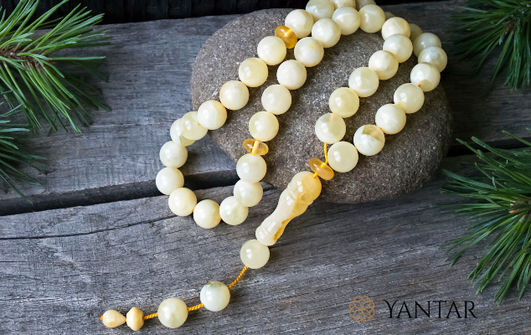
Muslims across the globe share a rich and spiritually uplifting set of daily expressions that connect them to their faith and reinforce positive interactions. These phrases are deeply rooted in Islam’s principles, echoing gratitude, patience, and reverence for God in everyday life. Let’s delve into these ten phrases and explore the significance of each in daily life.
1. Bismillah (بِسْمِ ٱللَّٰهِ) – “In the Name of Allah”
Usage: Starting any task or endeavor, big or small.
Meaning: Muslims begin any action—such as eating, leaving home, or starting work—by saying Bismillah, seeking blessings and guidance from God.
Importance: This phrase serves as a reminder to perform each act with sincerity and good intention.
2. Alhamdulillah (ٱلْحَمْدُ لِلَّٰهِ) – “Praise be to Allah”
Usage: Expressing gratitude, in good times and bad.
Meaning: Alhamdulillah is a way of thanking God for blessings, both big and small.
Importance: It cultivates gratitude, reminding Muslims to acknowledge life’s gifts and challenges as part of their faith journey.
3. Insha’Allah (إِنْ شَاءَ ٱللَّٰهُ) – “If Allah wills”
Usage: When speaking about future events or plans.
Meaning: Saying Insha’Allah recognizes that only Allah has ultimate control over the future.
Importance: This phrase emphasizes reliance on God’s will, promoting humility and patience in daily life.
4. SubhanAllah (سُبْحَانَ ٱللَّٰهِ) – “Glory be to Allah”
Usage: Expressing awe or admiration.
Meaning: SubhanAllah acknowledges God’s perfection and the beauty of His creations, often said when witnessing something awe-inspiring, like a beautiful sunset or a child’s smile.
Importance: This phrase is a reminder of Allah’s greatness, and by uttering it, Muslims strengthen their connection to the Creator and deepen their awareness of His creations.
5. Allahu Akbar (ٱللَّٰهُ أَكْبَرُ) – “Allah is the Greatest”
Usage: In prayer, moments of amazement, or times of difficulty.
Meaning: Allahu Akbar reflects God’s infinite greatness and supreme authority. It’s said in daily prayers and in times when Muslims feel the need for strength and courage.
Importance: This phrase reassures Muslims of Allah’s power, especially in challenging times, affirming that no matter the struggle, God’s strength is boundless.
6. Astaghfirullah (أَسْتَغْفِرُ ٱللَّٰهَ) – “I seek forgiveness from Allah”
Usage: When reflecting on one’s actions, especially after mistakes.
Meaning: Muslims say Astaghfirullah to seek Allah’s forgiveness for any sins or shortcomings.
Importance: This phrase fosters self-awareness and humility, encouraging Muslims to seek self-improvement and repentance continually.
Amber Rosaries (Tasbeeh): Many Muslims use an amber tasbeeh or rosary to keep track of the number of times they say Astaghfirullah (or other phrases). Amber beads are believed to have calming and healing properties, making them a popular choice for this spiritual practice. The tasbeeh helps them reach a sense of peace and focus during their remembrance of Allah.
7. JazakAllah Khair (جَزَاكَ ٱللَّٰهُ خَيْرًا) – “May Allah reward you with goodness”
Usage: As a way of thanking someone.
Meaning: Unlike a simple thank you, this phrase is a prayer for the recipient’s reward from Allah.
Importance: It deepens the sense of gratitude and appreciation, acknowledging that the person’s kindness deserves divine blessing.
8. La ilaha illallah (لَا إِلَٰهَ إِلَّا ٱللَّٰهُ) – “There is no god but Allah”
Usage: In moments of contemplation, struggle, or joy.
Meaning: This phrase is a central declaration of the Islamic faith, acknowledging the belief in one God.
Importance: Saying La ilaha illallah reaffirms faith and provides comfort, especially during difficult moments. It’s often part of tasbeeh (counted prayer) with amber rosaries, as believers seek to remember and declare Allah’s oneness.
9. MashAllah (مَا شَاءَ ٱللَّٰهُ) – “What Allah has willed”
Usage: When complimenting or admiring something or someone.
Meaning: This phrase is said to protect against jealousy or the “evil eye,” recognizing that all good things are by Allah’s will.
Importance: MashAllah encourages modesty and a sense of protection, reinforcing that blessings are ultimately God’s gifts.
10. BarakAllah (بَارَكَ ٱللَّٰهُ) – “May Allah bless”
Usage: When praying for someone’s success or happiness.
Meaning: BarakAllah is a wish for blessings upon someone or something.
Importance: By invoking blessings upon others, Muslims spread goodwill and compassion, reinforcing bonds within the community.
The Tradition of Amber Rosaries (Tasbeeh)
Amber rosaries, known as tasbeeh, play a special role in many Muslims’ daily routines. Each rosary typically has 33 or 99 beads, which help the user keep count as they repeat phrases in remembrance of Allah. Amber is a particularly popular material due to its organic, warm feel and the belief that it has calming properties. When Muslims say phrases like SubhanAllah, Alhamdulillah, and Allahu Akbar on each bead, they engage in a meditative form of worship that enhances focus and inner peace.
Amber tasbeehs are also cherished for their natural beauty and durability. Since amber is fossilized tree resin, it has a unique history that resonates with many Muslims who find comfort in its connection to the earth. Whether used during structured prayer or in spontaneous moments of remembrance, amber tasbeehs are a deeply personal and spiritual tool for Muslims around the world.
Historical Context of Duas
Duas, or supplications, hold a deeply rooted historical and scriptural significance in Islam, tracing their origins back to the Quran and the Hadiths, the sayings and practices of the Prophet Muhammad (peace be upon him). These sacred texts not only include the Duas themselves but also emphasize the importance of supplication as a means of connecting with Allah.
The Quran frequently highlights the power of Dua, encouraging believers to turn to Allah in all circumstances. Verses such as:
"And your Lord says, 'Call upon Me; I will respond to you.'" (Surah Ghafir: 60)
serve as an open invitation for Muslims to seek Allah's guidance, forgiveness, and support through heartfelt prayer. Many of the Duas recited today are directly derived from Quranic verses or inspired by themes found within the Holy Book.
The Hadith literature further enriches the tradition of supplication, offering numerous examples of the Prophet Muhammad's personal prayers and his teachings about the importance of making Dua. For instance, he is reported to have said:
"Dua is the essence of worship." (Tirmidhi)
Through his own practices, the Prophet demonstrated how Duas could be integrated into daily life, whether for seeking sustenance, asking for forgiveness, or expressing gratitude. His example provided Muslims with a model for crafting personal supplications while emphasizing the value of sincerity and humility in prayer.
Incorporating this historical context helps deepen the understanding of the selected Duas, allowing believers to connect not only with their meanings but also with their origins in Islamic tradition.
These ten phrases are much more than words; they’re expressions of faith, respect, and devotion that shape Muslims’ everyday lives. From small exchanges to deep prayers, each phrase connects believers with their Creator and strengthens their relationships with others. For many, using an amber tasbeeh brings an added level of tranquility to these daily remembrances, reflecting a connection not only to faith but also to nature’s timeless beauty.




 Jewelry
Jewelry Silver amber jewelry
Silver amber jewelry Amber pictures
Amber pictures Souvenirs
Souvenirs